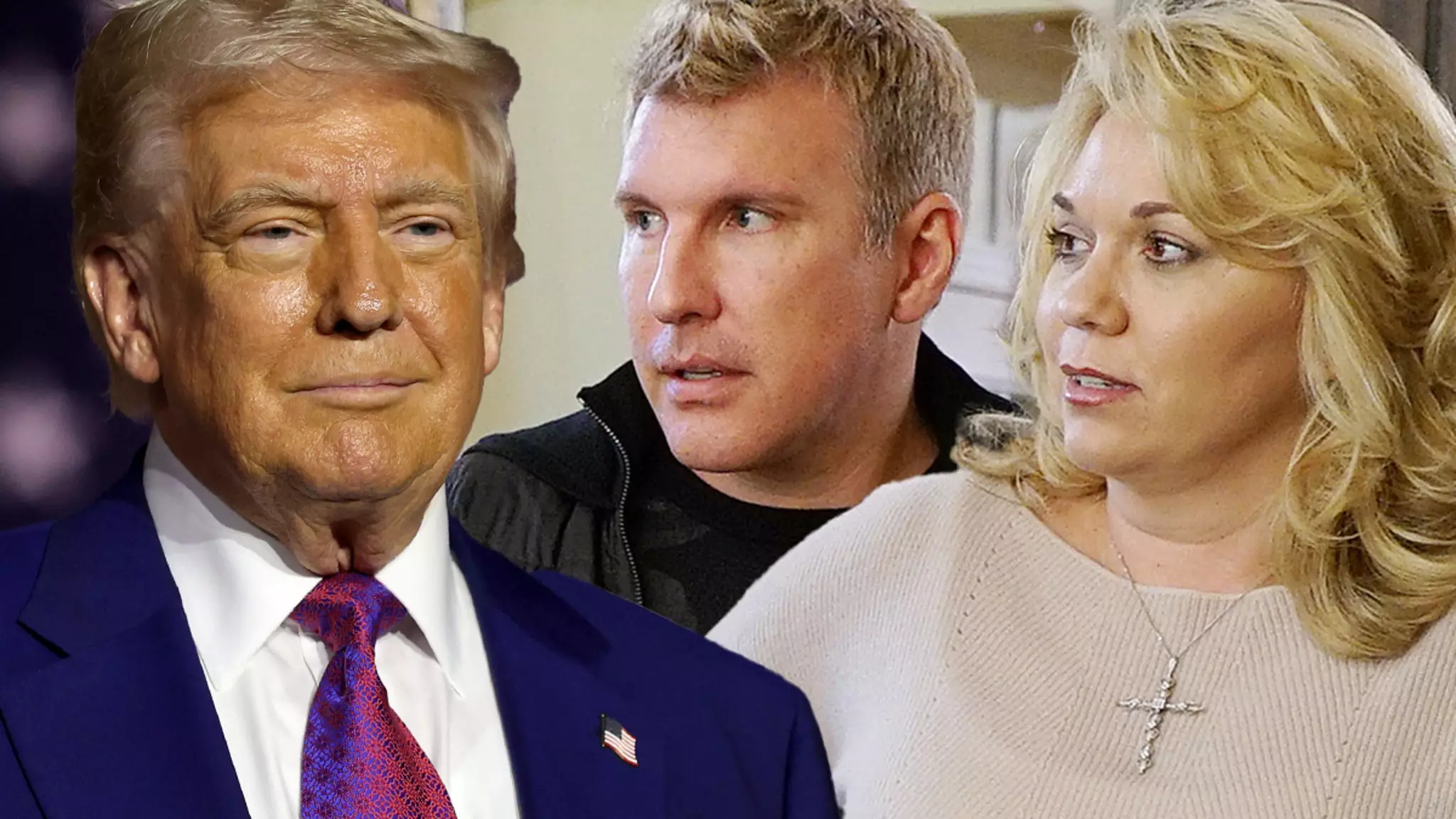The recent lives of Todd and Julie Chrisley have taken a sensational twist. After enduring a grueling legal battle, the notorious reality television couple has been granted a presidential pardon by Donald Trump, which has reignited discussions about justice, bias, and the implications of celebrity status in the American judicial system. With their sentences of over seven years being erased, this ruling not only reinstates freedom for the Chrisleys but also potentially frees them from an enormous financial burden—over $17 million in restitution previously ordered by a federal court.
The Dollars and Sense Behind Pardoning
While many may celebrate the Chrisleys’ return to freedom, it’s crucial to peel back the layers of this pardon. Under federal law, a pardon nullifies any unpaid restitution that a convict owes, offering a smooth exit from their financial obligations. Critics may view this as a troubling precedent, where justice appears to favor those with public profiles who may exploit their connections for clemency. In a landscape where many convicted individuals remain shackled by their debts, the Chrisleys’ ability to saunter back into their former lavish lifestyle raises ethical questions regarding equity in sentencing and financial reparations.
Moreover, there’s the added twist that, should a victim receive restitution before a pardon is issued, the government can mandate them to repay the convicted individual. This complex dynamic of financial justice serves to insert an unsettling element into what is often a straightforward narrative of righting a wrong.
A Narrative of Allegations and Defense
Todd and Julie’s case has been peppered with allegations that political motivations clouded their convictions. Their daughter, Savannah, publicly spoke out against the judicial actions taken against her parents, implying that their conservative values led to unfair targeting. Such claims hint at a turbulent intersection of politics and law, wherein the Chrisley family positions themselves as victims in a broader narrative of perceived bias regarding high-profile conservative figures. This pushback adds another layer of complexity; it invites us to consider whether celebrity status and political affiliations should alter the stakes of justice.
The courtroom drama began in 2019, amid a climate that saw a few disgraced celebrities receiving significant political support; the Chrisleys were no exception. The narratives spun around their experiences feed into a larger storybook of American celebrity culture, where social stature often wields as much power as principle.
Implications for Future Judicial Proceedings
This turn of events raises profound questions regarding how judicial approaches may shift in the wake of celebrity pardons. With a high-profile individual receiving clemency, how does this influence public perception of the legal system? The Chrisleys’ story exemplifies the complexities within criminal justice and could embolden other celebrities facing legal trials to seek similar political intervention. It not only highlights the disparity of treatment between high-profile individuals and ordinary citizens in the justice system but also challenges the common perceptions of accountability and rule of law in society.
As the Chrisleys reintegrate into society, their story becomes a real-time case study of how fame, political influence, and legal ramifications intertwine, sparking debate about what it truly means to receive justice in today’s world.

